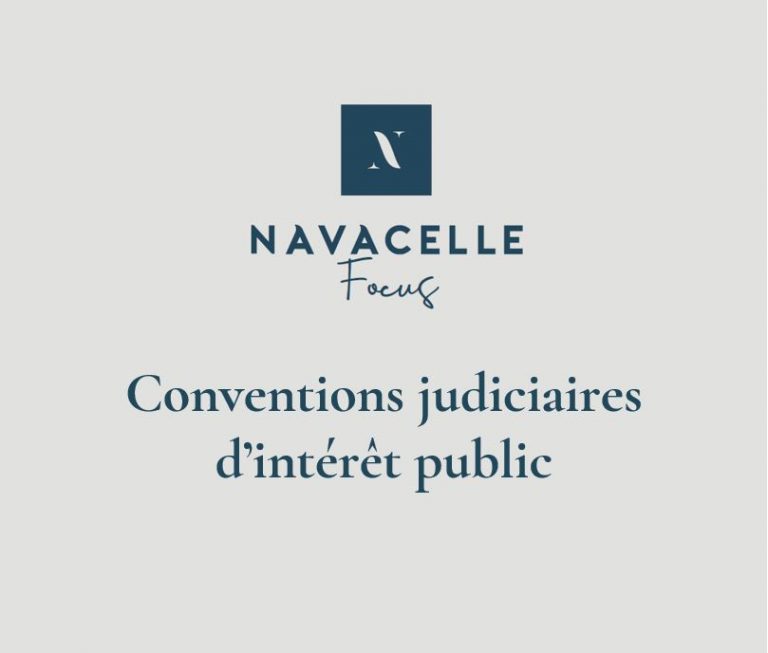On February 13, 2020, the French government published an Order1 transposing into French law the fifth European Anti-Money Laundering Directive2 entered into force on July 10, 2018. The provisions of the Order are transposed into Articles L. 561-1 to L. 566-3 and R. 561-1 to R. 562-5 of the Monetary and Financial Code (CMF) and aim to strengthen the AML/CFT mechanism by taking account the evolution in money laundering patterns.
I. Modification of the scope of entities subject to AML/CFT obligations3
The Order brings the scope of persons subject to AML/CFT obligations in line with European requirements, notably by including in the perimeter of AML/CFT control subsidiaries of financial sector companies, as well as tax advisory activities carried out by legal professionals4. The latter, previously excluded from the list, now join other legal counsels offering fiduciary and transaction advisory services and become subject to customer due diligence obligations. In addition, the autonomous funds for lawyers’ pecuniary settlements (CARPA) are now also subject to the AML/CFT obligations, as are the clerks of the commercial courts. Conversely, professionals in the art and property rental sectors will only be subject to the AML/CFT obligations for transactions above 10,000 euros and property management companies will no longer be subject to any obligations6.
II. Clarification of supervisory authorities’ obligations regarding AML/CFT control
The Order further clarifies AML/CFT control requirements expected to be met by the supervisory authorities. They must develop a good understanding of the specific risks of money laundering and terrorist financing presented by the supervised entities and need to adapt their control mechanism on a case by case basis to reflect these risks in the assessment. They are also required to review the assessment periodically or when major changes occur in management or activities. The authorities shall determine the frequency and intensity of their documentary and on-site inspections, taking into account, in particular, the risk profile of the persons subject to AML/CFT control7. In addition, a procedure for reporting breaches related to AML/CFT obligations through secure and anonymous channels is systematised for all supervisory authorities8. In fact, the reporting procedure issued from the Sapin 2 law which created a status of whistleblower in French law is also applicable to AML/CFT alerts.
III. Adjustment of the obligation of complementary vigilance
The Order also adjusts specific customer due diligence obligations. Additional due diligence measures are required to be introduced against high-risk third countries identified by the European Commission and the Financial Action Task Force9. Remote business relationships, however, are no longer considered to present a high risk of money laundering, requiring the systematic implementation of additional vigilance measures10. In addition, the concepts of correspondent banking and transit accounts, which receive special attention from regulatory bodies because of the risks inherent in these processes, have been clearly defined11.
IV. Register of beneficial owners: new rules for public access and strengthened liability for violation of declaration requirements
The beneficial owners are required to provide information allowing their identification. Beneficial owners who fail to make a declaration or report inaccurate or incomplete data may be subject to criminal proceedings12, leading to sanctions such as fines, ban from managerial responsibilities, and partial deprivation of civil and political rights. The supervisory authorities as well as persons subject to AML/CFT are required to report the absence of registration or any discrepancy between the information registered and the information available to them13.
Until recently, the public access to the register of beneficial owners was conditioned to a demonstration of a legitimate reason before the judge in charge of keeping the register14. The new rules no longer mention any specific requirement for public access to the register15. They however limit the scope of information that can be freely accessed by the public. That being said, information contained in the register is fully accessible to the authorities involved in the AML/CFT control16 and to persons subject to the AML/CFT legislation if their request is related to the abovementioned obligations17.
V. Enhanced role of TRACFIN18
The Order reinforces the confidentiality of the right of opposition that TRACFIN may address to any person subject to the AML/CFT obligations concerning a transaction suspected of constituting a money laundering operation19. Going forward, supervisory authorities cannot, under penalty of pecuniary sanctions, communicate to any unauthorised third persons, as well as to the author of the suspected operation, the existence of TRACFIN’s decision to stop the operation. TRACFIN’s ability to exchange information with its foreign counterparts is also reinforced20. Furthermore, provisions enabling it to exchange information with other French intelligence services are added21.
VI. Reinforced cooperation between supervisory bodies at national and European level
The information exchange between national and foreign supervisory authorities has been amplified. Notably, the Prudential Control and Resolution Authority (“Autorité de Contrôle Prudentiel et de Résolution” or “ACPR”), the Customs Administration and the French Anti-Corruption Agency (“AFA”) might exchange the information that can be useful for the performance of their respective missions22. Similarly, the Order also provides for enhanced coordination between national and European authorities, including the European Central Bank23.














